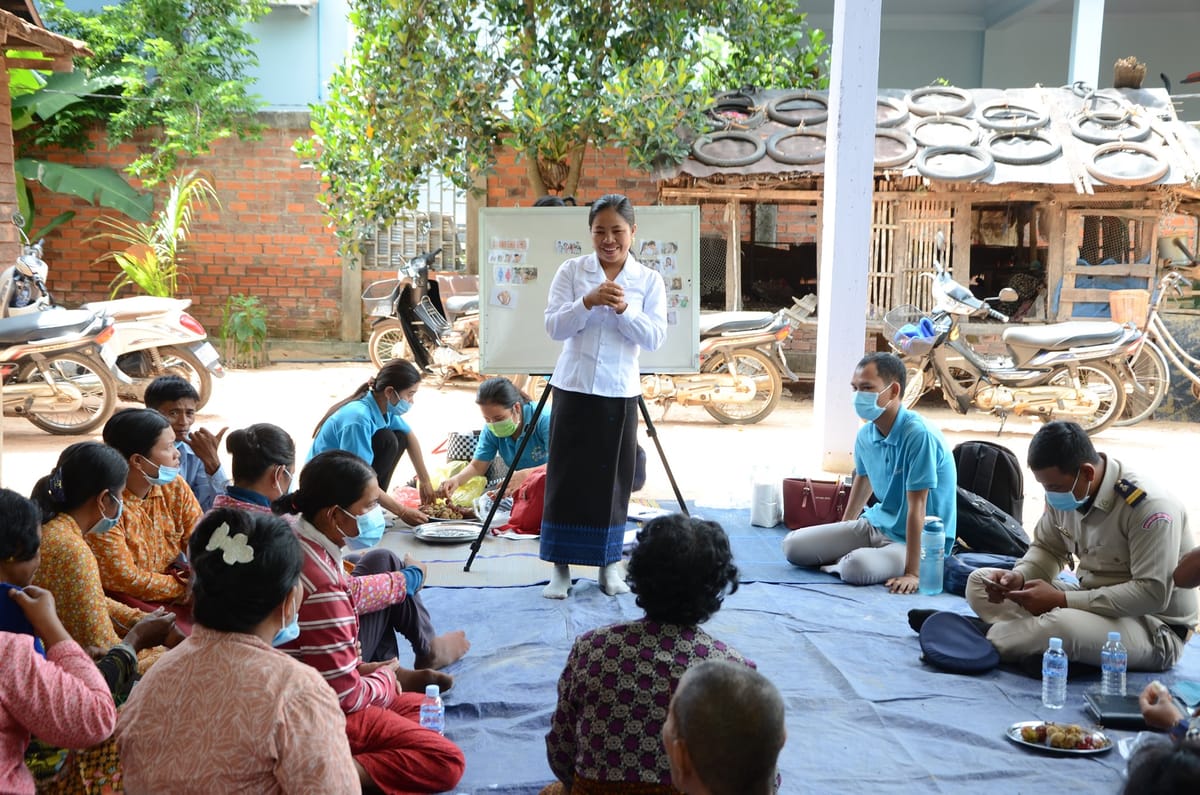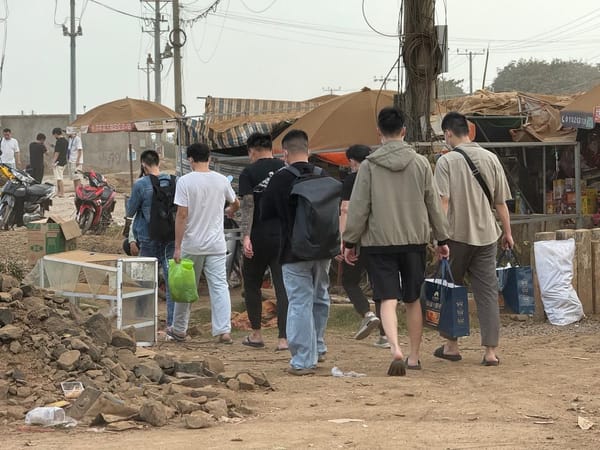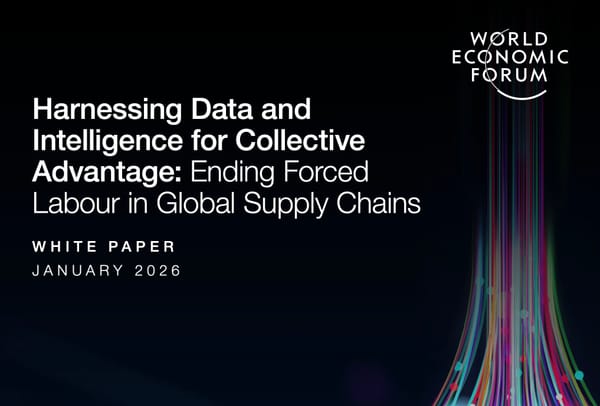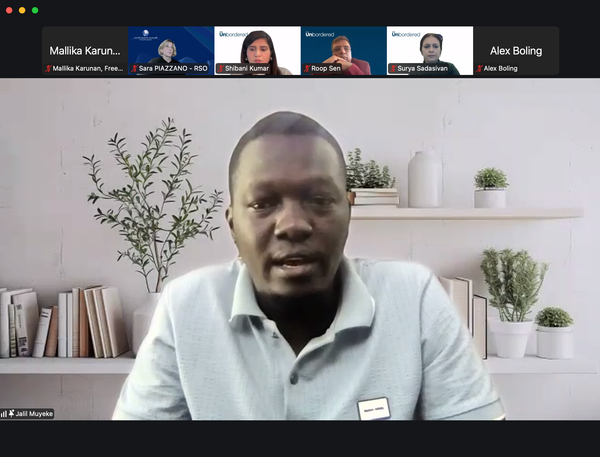USAID Funding Crisis Puts Decades of Anti-Trafficking Progress at Risk
Years of CTIP progress could be undone by the USAID shutdown, ATEST provides extensive input for the 2025 TIP Report, and Kenyan activists highlight the lack of action on gender-based violence.

The global anti-trafficking and broader human rights sector has been left reeling from yesterday’s apparent shutdown of USAID, with the effects extending beyond the risk of losing organizations to the unraveling of years of hard-won progress in building holistic, inclusive services and programs for survivors and at-risk communities.
In response, Freedom Collaborative is leading an emergency initiative to support the sector in coming together to mitigate the impact of the funding halt. We are driving awareness of the funding crisis through coordinated civil society advocacy, supporting our affected grassroots partners with storytelling assistance and greater visibility, and engaging funders to explore both immediate and sustained solutions.
Our partners on the ground have shared the immediate impacts and their longer-term concerns, highlighting the consequences for their programs, the survivors who rely on them, and the communities they work with.
Many groups in Southeast Asia, particularly those in Cambodia, have been affected, as USAID was one of the few funding sources supporting the response to human trafficking linked to cyber-scam compounds amid government deflection. Partners in the country report having no resources with which to support survivors, with some survivors re-entering exploitative work due to a lack of funds for flights home. Public fundraising is also challenging for groups operating in a restrictive and high-risk political environment. In Thailand, shelters are struggling without support for essentials like food, medical care, and transportation. NGOs are unable to continue critical work on law enforcement training and forced labour identification, and many community-based outreach, service provision, and training programs are on pause. Even organizations that are not directly affected are indirectly impacted, as they rely on larger agencies to collaborate on cases and repatriation efforts.
In countries in the Balkans, which rely almost entirely on donor funding, projects providing training, outreach, and direct services to survivors have been frozen, with some organizations unable to pay their staff. Groups in Latin America are also severely impacted, particularly those supporting Venezuelan migrants and trafficked individuals. One organization in Ecuador has let go of 11 staff members, and groups in Colombia have had to halt all operations. Meanwhile, political rhetoric from the U.S. Government is adding pressure to an already difficult situation, with many wondering where vulnerable migrants are now supposed to turn.
While there are certainly issues with north-led funding and large institutions, USAID had been supporting a shift towards long-term survivor-centered grassroots solutions, as well as the coordination efforts and shared infrastructure that keep the sector connected and effective. In some regions, it was the only funding available. Its sub-granting model, implemented through partners such as Winrock International, has enabled smaller community-based organizations to access funding without the administrative burden of large government grants. This has allowed them to develop programs that not only meet immediate needs but also support long-term recovery and empowerment. These organizations are more than service providers – they are leaders in effective, community-driven solutions.
For example, Chab Dai’s USAID-funded survivor support program, developed as part of its shift towards a survivor-centered approach that had already influenced government policy, has now been put on hold. This suspension affects nine staff members and dozens of survivors who rely on the program. The organization is particularly concerned about losing its highly skilled staff, whose expertise is crucial for maintaining long-term impact. Similarly, USAID supports the Andaman Friendship Association, which addresses human trafficking and exploitation of Myanmar migrants in Thailand. The group was founded by the daughter of refugee parents – her lived experience and deep understanding of local challenges have been central to the organization’s success and effectiveness on the ground.
Even if some U.S. funding for counter-trafficking work is restored, it may not support the same initiatives that USAID previously funded. There is a clear shift in narrative and priorities, with some survivors already losing their roles and being dismissed as mere “diversity hires”.
This crisis is not just about keeping organizations afloat or supporting those directly affected – it’s about safeguarding the progress we’ve collectively achieved. It’s about ensuring that the groups we have fought to include – survivors, migrants, LGBTQ+ individuals, and other at-risk communities – continue to have access to support services and that their rights remain protected. The implications of this funding halt reach far beyond immediate disruptions; they threaten to undo years of hard-earned collective advancements in the sector.
Here’s a round-up of other noteworthy news and initiatives:
The Alliance to End Slavery and Trafficking (ATEST) has provided extensive input to the U.S. State Department’s Office to Monitor and Combat Trafficking in Persons (J/TIP) for the 2025 Trafficking in Persons (TIP) Report, detailing both significant U.S. achievements and ongoing challenges in combating human trafficking. Among the highlights are the enforcement of the Uyghur Forced Labor Prevention Act and strengthened protections for guest workers, while deficiencies include inconsistent state laws for trafficking survivors and risks increased by the suspension of asylum protections at the southern border.
Despite government pledges to end gender-based violence by 2026, activists in Kenya have criticized the lack of effective action and point to systemic issues – such as patriarchal norms and inadequate legal protections – that perpetuate violence against women.
A new brief entitled “Bridging the Data Divide: Unlocking the Power of Data to Address Modern Slavery”, published by the United Nations University, stresses that inconsistent, opaque data systems continue to hinder efforts to monitor forced labour and trafficking, calling for globally standardized data to enhance transparency, accountability, and targeted policy interventions.
The UK activist group Stop Uyghur Genocide (SUG) plans to challenge Shein’s IPO on the London Stock Exchange, citing concerns over forced labour in its supply chain from China’s Xinjiang region. This follows Shein’s refusal to confirm if it sources cotton from areas linked to forced labour during a parliamentary inquiry.
The ASEAN–Australia Counter Trafficking (ASEAN-ACT) program is hosting a session on 6 February on migrant worker vulnerabilities in Southeast Asia, focusing on research to inform policies addressing forced labour and trafficking.
The UN Special Rapporteur on trafficking in persons is seeking input for a report to the Human Rights Council’s 59th session in June 2025, focusing on migrant domestic workers and trafficking. The report will examine labour rights, migration contexts, effective rights protection, and associated challenges, with submissions due by 28 February 2025.
GoodWeave and Rights Lab are hosting a virtual side session on Monday 10 February, as part of the 2025 OECD Forum on Due Diligence in the Garment and Footwear Sector. The session will address the hidden risks of modern slavery, child labour, home-based work, and outsourcing linked to Bangladesh’s ready-made garment supply chains, and experts from business, academia, civil society and government will share evidence-based insights and recommendations to enhance due diligence practices.




